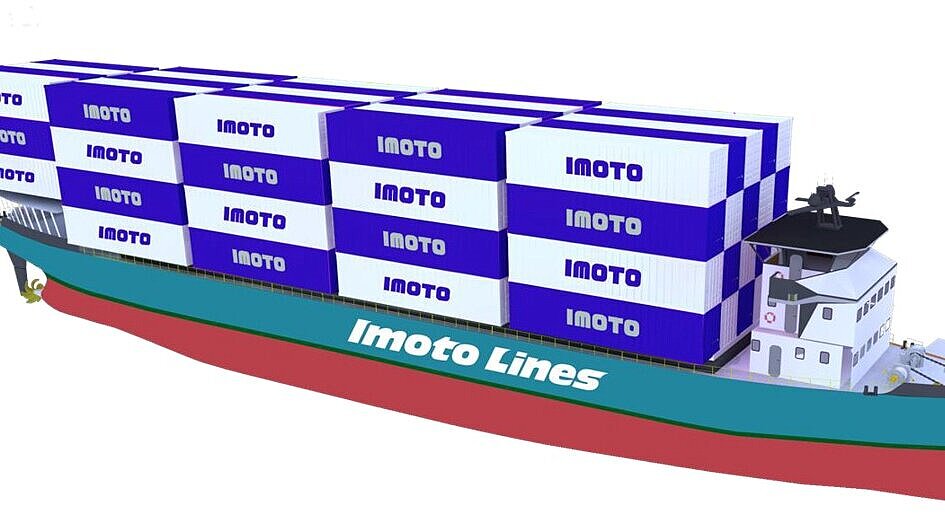Zero-emission boxship project launched

Conceptual figure of the boxship design
(Source: Imoto Lines)
Japan’s container feeder operator, Imoto Lines, and software firm Marindows have embarked on a zero-emission container ship project for operation on the Japanese coast. An initiative within the Ministry of the Environment’s three-year ‘Carbon Neutral Technology Research and Development Program’, the ship will be free of carbon emissions both at sea and in port.
The Japanese project has been developed as a strategy for meeting three major challenges which, some might say, are faced universally by the global shipping industry today – decarbonisation, a growing shortage of seafarers, and safe navigation. The new vessel is likely to be commissioned in 2026, the partners said.
The hybrid boxship will use Japan’s first exchangeable container batteries as well as shipboard batteries and generators. It will be deployed initially on a service between Kobe and Hiroshima.
A key element of the project is that the zero-emission container ship will use fuel that is carbon-zero on a well-to-wake basis. The supply chain from fuel mining and manufacturing to battery deployment will operate using renewable energy.
Meanwhile, a combination of electrification, standardisation, modularisation and land-based support will enable the ship to navigate safely and efficiently with fewer people with less skill and experience, the partners said in a statement.
They also noted an issue which is holding up the adoption of some renewable technologies – high costs and possible obsolescence. “This ship will significantly reduce operating costs through thorough standardisation, modularisation and mass production, aiming to achieve total operating costs, including construction, that are approximately 30% higher than existing ships, but comparable when overall costs are considered. It also adopts a design that can be flexibly upgraded with the introduction of new technologies and systems, minimising the risk of technology obsolescence and ship obsolescence.”
